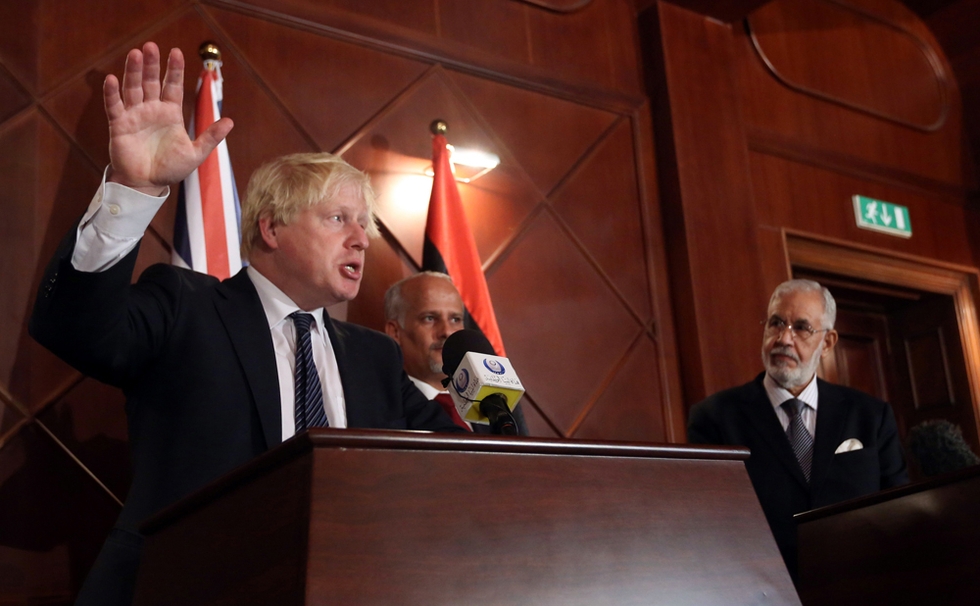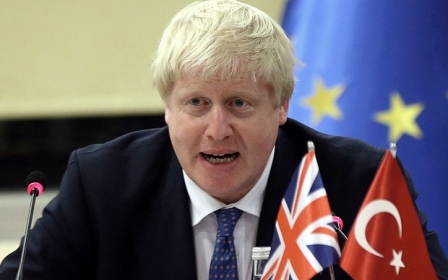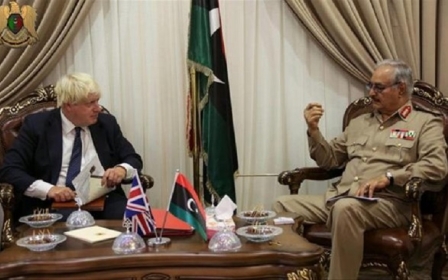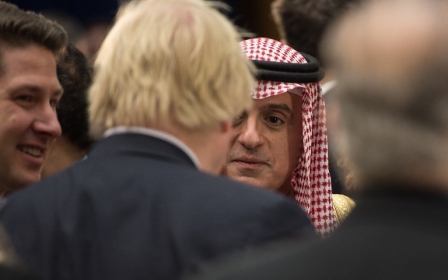Boris Johnson 'dead bodies' row deepens as Libya demands explanation

Libyan authorities on Thursday demanded an explanation from Britain's foreign minister Boris Johnson over his remark on the need to "clear dead bodies" away in the strife-torn North African country.
The foreign secretary has already come under fire at home over his assessment of an August visit to Libya that the country could attract foreign investment and tourists after the corpses from fighting were cleared.
Fayez al-Sarraj, head of the internationally recognised Government of National Accord, met the British ambassador Peter Millett to demand an explanation of the "unacceptable" comment, according to the GNA's Facebook page.
It quoted Millett as saying that Johnson was referring to the dead of the Islamic State (IS) group who had killed hundreds of Libyans.
The row deepens
Libya's rival authorities in the east of the country, through parliament's foreign affairs committee, condemned Johnson's "irresponsible" comment that was "an affront to the dignity" of the Libyan people, demanding an official apology.
Many ordinary Libyans went on social media to express their anger over the comment.
The British foreign secretary's comments at a Conservative Party conference fringe meeting on Tuesday sparked anger, with a senior Libyan politician telling MEE that Britain’s top diplomat “dishonoured the memory of young Libyans who died fighting against Islamic State”.
"They've got a brilliant vision to turn Sirte, with the help of the municipality of Sirte, to turn it into the next Dubai," Johnson had said. "The only thing they've got to do is clear the dead bodies away and then we will be there."
Some activists from Prime Minister Theresa May's party laughed at the joke; however, Guma El-Gamaty, head of the Libyan Taghyeer Party and a member of the Libya Political Dialogue group, said on Wednesday that Johnson's "insensitive comments" had "dishonoured the sacrifice" of up to 750 Libyan men who died fighting against Islamic State militants in Sirte.
In an interview with Middle East Eye, he said: “Libyans fought and died fighting Islamic State in Sirte, and thousands more were injured. Many remain where they fell because of the nature of the fighting and the number of collapsed buildings and tunnels.
"It is insensitive to talk about those bodies as if they are some sort of obstacle to Sirte becoming a destination for British businessmen to enjoy their beer and sunbathing.”
'He should retract his comments'
Gamaty said it was up to Theresa May to decide on Johnson's future in government, but said: "The very least he should do is apologise to the families of the young men who died. He should retract those comments".
"He obviously lacks a deep and real understanding of Libya," he added.
Johnson has also been accused of naivety for suggesting that British firms are eager to invest in Sirte, where violence is still common and few public services are operational.
Oliver Miles, the UK’s former ambassador to Libya and deputy chairman of the Libyan-British Business Council, told MEE on Wednesday that the gaffe was another example of Johnson’s “inability to keep his mouth shut”.
He said: “We have already seen reaction in Libya suggesting that these dead bodies are people who had fought Islamic State and they deserve to be honoured.
“And it’s exaggerated to say there are lots and lots of companies ready to pour into Libya. It was a silly thing to say. Loose lips in diplomacy don’t pay. We are some way from major UK firms investing in Libya."
New MEE newsletter: Jerusalem Dispatch
Sign up to get the latest insights and analysis on Israel-Palestine, alongside Turkey Unpacked and other MEE newsletters
Middle East Eye delivers independent and unrivalled coverage and analysis of the Middle East, North Africa and beyond. To learn more about republishing this content and the associated fees, please fill out this form. More about MEE can be found here.




